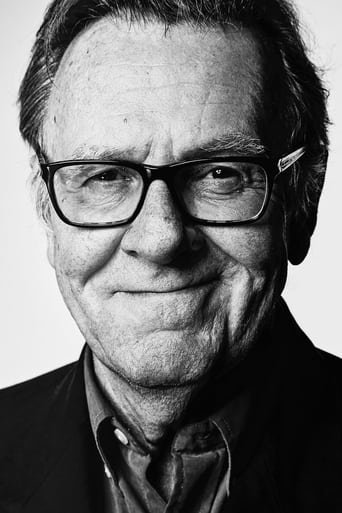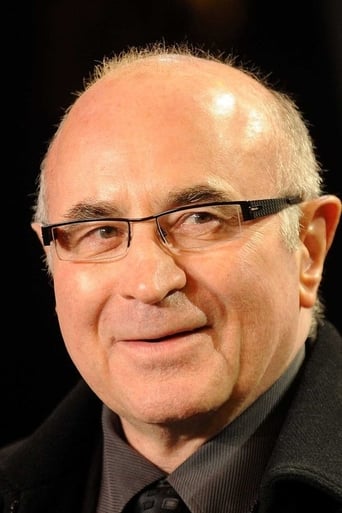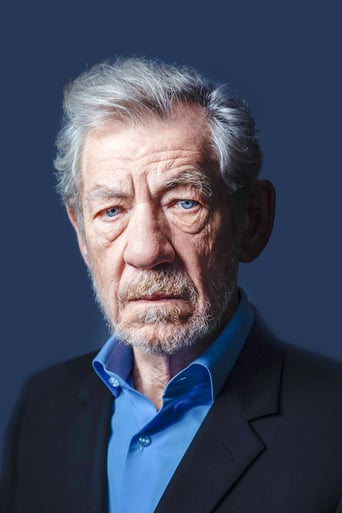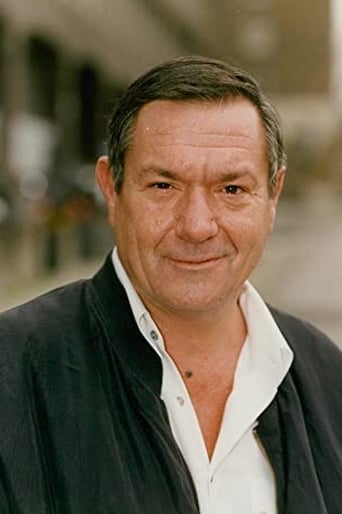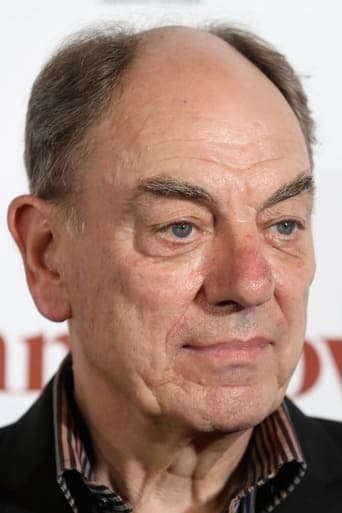Smartorhypo
Highly Overrated But Still Good
Platicsco
Good story, Not enough for a whole film
ChicRawIdol
A brilliant film that helped define a genre
Guillelmina
The film's masterful storytelling did its job. The message was clear. No need to overdo.
Dr Jacques COULARDEAU
This story is such a classic that anyone must know it without having ever read it, just like me. Peggotty has been an old friend of mine since junior high school but never had I opened the book, though I have the complete works of Charles Dickens in my library, and never had I seen any screen adaptation of it before tonight. So I just discovered this fine story in my old age, and in a way I regret it.Of course there are orphans and in this case even, David Copperfield is orphaned before his birth. Of course there are step parents who are absolutely obnoxious and brutal. Of course there is a school for boys who are treated like dogs and beaten like trash. Of course there are strict and painful social situations that lead to prison, begging, being robbed and whatever you can imagine, especially when you are a nice young boy, too pure to be true and too naïve to be serious.But even the factory in which David Copperfield is forced to work at the early age of ten or eleven looks like paradise when compared with the stepfather and his dear sister, two goal-keepers and nothing else. And that's the miracle of Dickens. He transforms an absolutely bleak situation into a rose garden, or if you prefer the crazy crushing life of a boy into a school for gentility and success.That's the mystery and miracle Dickens cultivates in all his books. No matter how horrible life may be, and be sure he remained discreet about the worst details, he turns it into a happy ending and a success story. And that's how a forlorn and abandoned orphan will be able to cut a position for himself under the sun and in society.People could say Dickens was a blind optimist, but he was not blind at all and knew about the sinister life we live in. We could say he is a hypocrite writing stories about the dregs of society to sell them to and make money from the rich and wealthy minority that could read and afford the serials or books, and what's more to cover up with happy endings the terrible fate of most working people and children in this Victorian society. And we would be wrong.Dickens' books are a testimony of what Victorian society was and a great lesson given to those who had and still have the power and the money necessary to change things that change cannot be stopped because there will always be a few who will be strong enough or lucky enough to climb up to a position from which they may influence the world. In fact he thinks he is one of these and he is telling us book after book the same story of the enterprising young man who will change the world with his words and mind.It is optimistic for sure but heart warming even more, and this BBC adaptation is just perfect as for that brittle equilibrium between social criticism and human advancement.Dr Jacques COULAREDEAU
Neil Welch
This is good stuff, and I echo most of the positive comments made here. But is it just me, or didn't anyone else find the casting over-excessively starry? Every time I blinked there was another well-known name playing a small part, down to Dawn French as the landlady and Paul Whitehouse as the pawnbroker. What next, I thought, Clint Eastwood as the milkman? Tom Hanks as the bloke walking by on the other side of the road? Which is not to say that they weren't all very good - of course they were! - but I found it very distracting sitting there waiting in anticipation with my I-Spy book of stars doing cameos.And please save me from "Oh, Daniel Radcliffe was so cute." Radcliffe was an almost incidental child actor, who did a bit better here than he did in the Potter films (where he was so wooden that he failed to justify the faith placed in him). The strength here is in the featured characters surrounding David Copperfield's anodyne narrator.OK, that's my bit done. Normal service will now be resumed.
patrick powell
This BBC version of David Copperfield demonstrates rather well the differences between a novel and a film or TV production. On the face of it, there is nothing wrong with this - in fact as far as TV productions go, this is rather good. High - very high - production values, top-notch actors, good direction: it's all there. So why does it only get half marks. Well, that has to do with the difference between film and writing. We live in a visual age where visual impressions are everything. So for many years now Hollywood has been getting away with producing highly successful, high-grossing film which, at the end of the day, have very little going for them but loads of action. This is true of films ranging from vacuous nonsense such as Enemy Of The State, which is nothing but one long chase to family films such as the equally vacuous Home Alone. The secrecy is to make sure the viewer has no time to think. In fact, thought is a no-no (something which seems to be a feature of our age in the Western world anyway.) Fiction can be equally as exciting, but the writer has none of the resources of the film maker: no film score, no special effects, no computer animation, no soundtrack. Everything - and that does mean everything - has to be conveyed somehow by the written word. And everything takes place in the reader's imagination. And sparking that imagination is the art of the writer. Ironically, despite apparently far more limited resources, the writer is far freer. In a very curious sort of way he has no restrictions whatsoever. So what has this to do with the BBC production of David Copperfield? Well, it is this: through no fault of its own, the 'movie' version of David Copperfield simply isn't very good. Why? Because what can be established in the novel takes far longer to be established on film, or at least in a film using this conventional kind of production. Dickens, despite being restricted to merely a quill pen and a well of ink, could give his story far more depth than a TV production, which is not allowed to take too long doing anything for fear of losing the viewer's interest. Some examples of why this TV production simply leaves too much out in the cold to allow for an enjoyable, intelligent rounded experience: David's nasty stepfather: exactly why does he take a dislike to David and treat him so badly? David's relationship with Peggoty's family in Yarmouth: we are simply informed that he forges a close bond with them, but never shown why. Steerforth's relationship with his mother and his mother's companion: this is all very much drama lite. Steerforth's seduction of Emily: it all happens off-stage and really doesn't register. Betsy Trotwood: just why does she have such a down on boys? Who knows? The list could go on. Everything on screen is presented and intended simply to be accepted. No reasons or justifications are ever given. On the written page, on the other hand, and given the freedom of the writer to employ whatever means he or she wishes to tell his or her story, these things can be established. The writer can digress, explain, range over time and distance, do things which are often impossible for the filmmaker. It is an irony that the writer is far less constricted and restricted in what he might do than the filmmaker, despite all the technical whizzbangs and tricks whichthe the film director has to hand. I pointed out that this particular version of David Copperfield might have suffered from the very conventional television direction. The implication is that given another director, this might have been more convincing. Oh well. For those who like their Sunday afternoon Dickens, this is passable stuff. But in no way does it rise above being very ordinary.
katissokool
I first watched this when I was about eight and it was showing on the ABC or something. I only saw the first part however, but even at the age of eight, I loved it (this was before Daniel Radcliffe had been cast as Harry Potter) and my absolute favourite character was the young David. But I also found Aunt Betsy Trotwood extremely amusing. The first part was put together very well, and was a top-notch, high quality drama.About six months ago, I decided to buy it and I absolutely loved the first part once again and looked forwards to watching the second. Unfortunately I found it dull and dreary compared to the first half. The second David was so appalling, that I remain convinced the only reason he was cast was because he was a descendant of Dickens himself. I was immensely glad when the thing was finished. I would also like to point out that Ciarán McMenamin and Daniel Radcliffe do not look in the least alike.All in all, it was a decent production. I hope that the talent Daniel Radcliffe showed in this small production will also come through in December Boys. He was entrancing in this.



